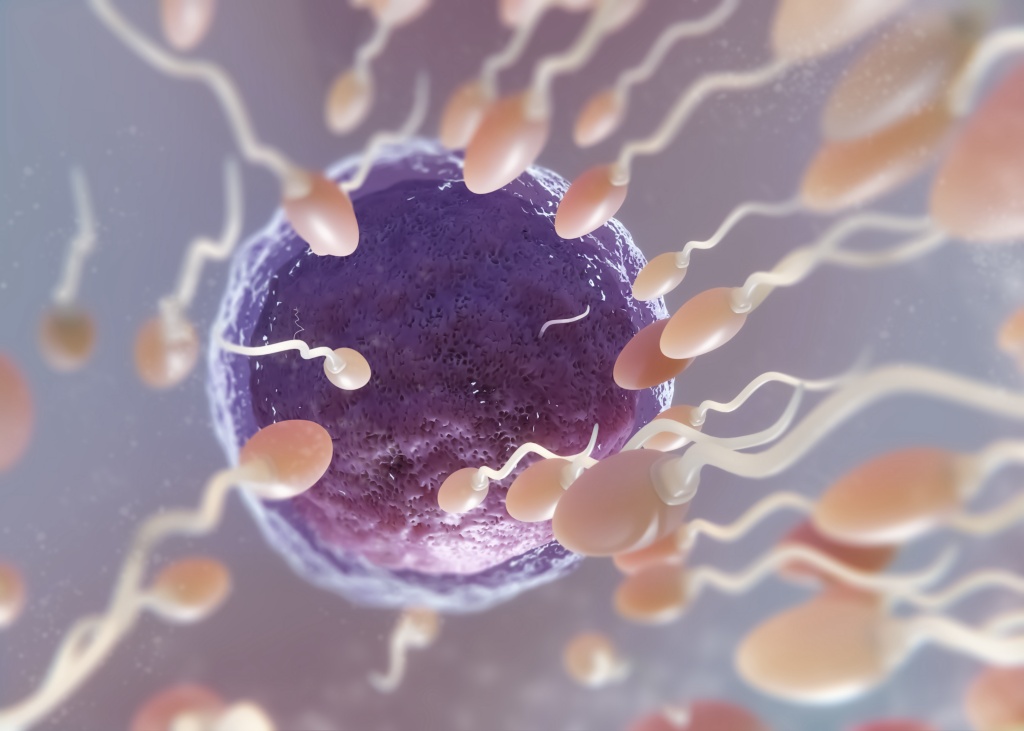
Embryo donation represents a remarkable option within the realm of assisted reproductive technologies (ART). By providing unused embryos from IVF treatments to other individuals or couples, this process opens doors for those who face significant challenges in achieving biological parenthood. It is not merely a medical procedure but also an altruistic and ethical choice, contributing to the broader goal of addressing infertility.
What is Embryo Donation?
Embryo donation refers to the process in which a donor couple allows their unused embryos from IVF treatments to be transferred to another person or couple who is unable to conceive on their own. This practice provides hope for those struggling with infertility and gives a chance for a family to grow through a form of embryo adoption.
Unused embryos are commonly created during IVF cycles to maximize success rates, but not all are utilized. Cryopreservation has allowed these embryos to be stored for future use, giving rise to opportunities for donation. This process bridges the gap between scientific innovation and compassionate care, offering a meaningful way to utilize surplus embryos.
Embryo donation is a groundbreaking way to become a parent, offering hope to individuals and couples facing fertility challenges. This option allows families who have completed their IVF journeys to give their remaining embryos to others who want to start or expand their families.
The process has gained significant popularity in recent years, with many fertility clinics reporting increased interest from both donors and recipients. The appeal lies in its unique benefits:
- Recipients get to experience pregnancy and childbirth
- It costs less compared to traditional IVF treatments
- Donors have the opportunity to help other families
- The success rates are high because the embryos have already been screened
For prospective parents, embryo donation combines elements of adoption and assisted reproductive technology. In this process, the donated embryos are transferred to the recipient’s uterus, allowing them to carry and give birth to their child. This creates a deep biological connection through pregnancy.
To fully understand embryo donation, it’s important to consider various factors:
- Medical requirements and screening processes
- Legal implications and parental rights
- Emotional readiness for both donors and recipients
- Financial planning and associated costs
- Success rates and potential outcomes
This comprehensive guide will delve into these crucial aspects, helping you make informed decisions about whether embryo donation aligns with your goals of starting or expanding your family.
Embryo Donation and Embryo Adoption
Though the terms “embryo donation” and “embryo adoption” are often used interchangeably, they have slightly different implications. Embryo donation typically involves the gifting of embryos without the legal complexities of adoption. However, embryo adoption can involve more formal arrangements, including legal agreements that ensure the recipient family legally adopts the embryos, treating them as their own.
The choice between donation and adoption depends on the regulations of the jurisdiction and the preferences of the involved parties. In some countries, embryo adoption aligns with cultural and legal norms, offering a structured approach to ensure ethical compliance.
From a medical perspective, both processes involve the same scientific procedures. The key difference lies in the legal framework and emotional approach to the process. Some families prefer the adoption framework as it provides a more structured legal process and acknowledges the psychological aspects of receiving genetic material from another family.
Who is Eligible for Embryo Donation?
Eligibility for embryo donation involves meeting specific medical, psychological, and legal criteria. Donors must have completed their family planning, be free of genetic or infectious diseases, and be willing to provide detailed medical and psychological histories. Recipients, typically individuals or couples facing infertility, must be in good health, meet age requirements, and complete necessary medical and legal evaluations to ensure readiness for pregnancy.
Eligibility Criteria for Embryo Donation
The eligibility for both donating and receiving embryos is subject to medical and legal guidelines. Generally, anyone who has undergone IVF and has unused embryos can choose to donate them. The recipient of the embryos must meet certain health and fertility requirements to ensure the best chances of success.
- Donors:
Must have completed their family planning
Should be free from genetic disorders and infectious diseases
Must undergo comprehensive medical screening
Should be willing to provide detailed medical history
Must complete psychological evaluation
Should be prepared for legal documentation
- Recipients: Individuals or couples experiencing infertility, particularly those who have been unsuccessful with traditional IVF treatment in Cyprus, can receive embryo donations.
Should be in good overall health
Must undergo medical evaluation to ensure ability to carry pregnancy
Should complete psychological counseling
Must meet age requirements (typically under 50)
Should have no significant medical contraindications to pregnancy
Must complete required legal documentation
 Why Choose Embryo Donation?
Why Choose Embryo Donation?
Embryo donation offers hope to individuals or couples unable to conceive naturally or through IVF. It also provides a solution for those who want to experience pregnancy but do not have viable eggs or sperm. Embryo donation can provide a pathway to parenthood, often with a quicker timeline than traditional IVF.
For Recipients:
- Opportunity to experience pregnancy and childbirth
- Lower cost compared to traditional IVF
- Higher success rates compared to some other fertility treatments
- Genetic solution for those with fertility challenges
- Chance to bond with baby during pregnancy
- More control over prenatal environment
For Donors: - Ability to help other families achieve their dreams
- Ethical alternative to discarding unused embryos
- Opportunity to give their embryos a chance at life
- Psychological closure to their fertility journey
- Contribution to medical research (in some cases)
How Does the Embryo Donation Process Work?
The embryo donation process involves transferring embryos donated by one couple to another individual or couple seeking to achieve pregnancy. This process includes consultation, matching, comprehensive screening, embryo transfer, and follow-up care, ensuring a safe and effective journey for both donors and recipients.
Embryo Donation Process Step by Step
The embryo donation process typically follows these key steps:
The embryo donation process involves several well-defined steps to ensure safety, efficiency, and success.
- Consultation
Both donors and recipients meet with fertility specialists to discuss medical histories, expectations, and potential outcomes. This step sets the foundation for the donation process.
- Matching
Donors and recipients are matched based on compatibility factors such as medical history, genetic profiles, and personal preferences. Many clinics maintain extensive databases to facilitate this process.
- Screening and Testing
Donors undergo thorough testing to rule out genetic abnormalities and infectious diseases. Recipients are evaluated for uterine readiness and overall health. Psychological assessments are also recommended for both parties.
Donor Requirements and Screening
Age and Health Requirements
- Embryo donors must typically be under 35 years old at the time of egg retrieval
- Both genetic parents must pass comprehensive medical screening
- No history of genetic disorders or inheritable diseases
- Negative testing for infectious diseases
- Complete medical history documentation
FDA-Mandated Screening
- Blood testing for:
- HIV-1 and HIV-2
- Hepatitis B and C
- Syphilis
- HTLV-1 and HTLV-2
- Genetic carrier screening for:
- Cystic Fibrosis
- Spinal Muscular Atrophy
- Fragile X Syndrome
- Genetic Testing may also be advised to understand potential hereditary risks.
Medical Documentation
- Detailed reproductive history
- Previous pregnancy outcomes
- Family medical history spanning three generations
- Mental health evaluation
- Substance use screening
Quality Assessment
- Embryo grade evaluation
- Development stage documentation
- Freezing method verification
- Storage duration records
The screening process includes physical examinations, laboratory tests, and thorough reviews of medical records. Fertility clinics maintain strict protocols for embryo handling, storage, and transfer procedures.
- Embryo Transfer
Embryos are thawed and transferred into the recipient’s uterus in a minimally invasive procedure. The success of this step largely depends on the quality of the embryos and the recipient’s health.
- Follow-Up Care
After the transfer, recipients receive close monitoring to ensure successful implantation and early pregnancy development. Hormonal treatments may be prescribed to support the pregnancy.
What are the Embryo Donation Success Rates?
Factors Affecting Success Rates
Success rates for embryo donation are influenced by multiple factors, including the quality of the embryos, the recipient’s uterine health, and the expertise of the fertility clinic.
Scientific Factors Influencing Success
- Embryo Quality
-
-
- Embryos created using donor eggs or young maternal age exhibit higher implantation potential due to reduced chromosomal abnormalities.
-
- Cryopreservation Techniques
-
-
- Vitrification has replaced slow-freezing methods, significantly increasing post-thaw survival rates and overall pregnancy success.
-
- Recipient’s Health
-
- Optimal endometrial thickness (typically 8-12mm) and hormone levels are critical for successful implantation.
Statistical Outcomes
On average, embryo donation success rates range from 30-60%, with higher rates reported in specialized clinics. Institutions like Cyprus IVF Clinic leverage cutting-edge technology to maximize these probabilities, setting benchmarks in ART success.
How Much Does Embryo Donation Cost?
The cost of embryo donation varies widely depending on the clinic and the country. The expenses typically include screening, matching, the IVF process, and any necessary medications. It’s important for individuals considering embryo donation to consult with their chosen fertility clinic to get a clear understanding of the full cost involved.
Why Choose Vita Altera IVF for Embryo Donation?
Vita Altera IVF is a trusted clinic specializing in reproductive technologies, including embryo donation. With a commitment to ethical practices and advanced medical treatments, Vita Altera IVF offers personalized care to individuals seeking embryo donation, ensuring a smooth, confidential, and supportive journey to parenthood.
Frequently Asked Questions About Embryo Donation
Are there any risks involved in embryo donation?
Like any fertility treatment, embryo donation carries some risks, including the possibility of multiple pregnancies, failed implantation, or complications during the pregnancy. However, these risks are minimized through careful screening and monitoring.
Who can benefit from embryo donation?
Various individuals and couples can benefit from embryo donation, including infertile couples, single parents, and same-sex couples. This option provides a pathway to parenthood for those who may not have viable embryos of their own.
What are the steps involved in the embryo donation process?
The embryo donation process includes several key steps: donor screening to ensure safety and health, creating embryos through IVF, cryopreserving them for future use, and evaluating recipients through medical history assessments to find suitable matches.
Can anyone receive an embryo donation?
Not everyone is eligible to receive an embryo donation. Medical assessments and genetic screening are essential to ensure the recipient’s health is suitable for pregnancy.
What are the success rates for pregnancies through embryo donation?
Success rates depend on various factors, including the age and health of the embryo donor, and the overall health of the recipient. Generally, success rates for embryo donation are high, ranging from 30-60%.
Is embryo donation legal in my country?
Laws regarding embryo donation vary by country. It is important to consult with a legal expert or fertility clinic in your country to understand the regulations surrounding embryo donation.
How do I find an embryo donation center or clinic?
Finding an embryo donation center is easy through online research or referrals from trusted healthcare providers. Make sure the clinic is accredited and follows ethical guidelines.
What happens to unused embryos after IVF?
Unused embryos may be frozen for future use, donated to research, or donated to another couple. In some cases, embryos may be discarded.
Can I choose the donor when receiving an embryo?
Yes, many clinics allow recipients to choose from available embryo donors, based on their preferences and medical compatibility.
What medical tests are required for embryo donation?
Donors and recipients must undergo medical testing to ensure there are no infectious diseases or genetic conditions that could affect the pregnancy.
Are donated embryos screened for genetic conditions?
Yes, embryos are screened for genetic conditions to minimize risks of hereditary diseases and ensure a healthy pregnancy.
How long does the embryo donation process take?
The timeline for embryo donation can vary but typically takes several months from the initial consultation to the embryo transfer procedure.
Do I have to undergo counseling before donating or receiving an embryo?
Counseling is recommended for both donors and recipients to ensure that all parties understand the emotional and ethical implications of the process.
What happens if the embryo donation is unsuccessful?
If the embryo donation is unsuccessful, the recipient may be offered additional embryos or alternative fertility treatments.
Can I meet the recipient of my donated embryos?
In most cases, embryo donations are anonymous, though some clinics may allow for open communication between the donor and recipient.
Are there any ethical concerns related to embryo donation?
Embryo donation raises ethical concerns, particularly around the potential for exploitation or emotional issues that may arise for both donors and recipients. It’s essential to navigate these concerns with the help of medical professionals and counselors.
How do I start the process of donating or receiving an embryo?
To start the process, contact a reputable embryo donation clinic, like Vita Altera IVF , where you can receive guidance and support throughout your journey.



 Why Choose Embryo Donation?
Why Choose Embryo Donation?


